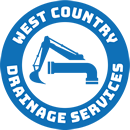Maintaining a sewage treatment plant can be a daunting task. It is essential to follow the correct procedures and protocols is essential to ensure that your plant runs smoothly and efficiently.
This guide will outline some key steps you need to take to maintain your sewage treatment plant properly.
The Importance of Maintaining Your Sewage Treatment Plant
Your sewage treatment plant is an essential part of your home or business.
It is important, therefore, to ensure that it maintains its functionality for as long as possible. You should hire a reputable company to maintain and inspect your septic tank regularly to avoid costly repairs in the future.
Here are four reasons why maintenance of your sewage treatment plant is important:
1. Preventing Future Issues
If proper maintenance is not done on your septic system, it can lead to expensive repairs or even complete replacement of the system in the future.
To avoid this, have your septic system inspected annually by a licensed contractor to identify any issues early to fix them before they become major problems. Regular inspections also ensure that your system is running efficiently at all times.
2. Lower Risk of Health Problems
Having your septic tank inspected regularly helps ensure that your family is safe from harmful contaminants and gases released from your tank during use.
The inspection process involves checking for any blockages or leaks in the system that may contaminate the soil around your tank. This inspection can also identify other issues with your septic systems, such as broken pipes or pumps, that may cause the release of dangerous gases into the air.
A licensed contractor can recommend ways to keep your family safe and reduce exposure to these harmful pollutants.
3. Reduced Property Damage Risk
Suppose your sewage treatment plant is not properly maintained. In that case, you may experience damage to your property due to flooding, contamination of the soil, or the release of harmful chemicals into the air.
Regular inspections can help to prevent this damage by identifying issues early before they can cause significant damage to your property. Additionally, regular inspection of your septic system helps you avoid fines and other penalties imposed by local regulatory agencies for non-compliance with laws and regulations regarding the proper disposal of wastewater on your property.
4. Enhanced Property Value
Regular property maintenance increases its resale value as it helps maintain the aesthetics of your home or business premises.
Having your septic tank regularly inspected also helps you maintain a clean environment that attracts potential buyers and improves the overall value of your property.
How Often Should You Maintain Your Sewage Treatment Plant?
The frequency at which you should maintain your sewage treatment plant will depend on various factors.
We can advise you on how often you should maintain your sewage treatment plant based on your situation. The main factors are:
- How large is your sewage treatment plant?
- When are you using your sewage treatment plant?
- Do your neighbours or other family members use their sewage treatment plants?
- How dirty is the water coming into your sewage treatment plant?
How to Properly Maintain Your Sewage Treatment Plant
Sewage treatment plants are responsible for treating wastewater and treating it in a way that protects public health and the environment.
However, improper maintenance can lead to sewage overflows and environmental damage. Here are several easy tips to help you properly maintain your wastewater treatment plant.
First, you must replace your sludge removal equipment regularly. Sludge removal equipment needs to be cleaned regularly to ensure that it is free of bacteria that can cause disease.
Second, you should protect your sludge removal equipment from damage. Equipment should be covered when not in use and protected from harsh weather conditions.
Finally, you should schedule regular inspections of your wastewater treatment plant. These inspections will ensure that your plant is functioning properly and that any problems are found before they become serious.
If you follow these simple tips and maintain your plants properly, you can protect your health and protect the environment.
Preventing Sewage Back-Ups in Your Drain
Backing up sewage and wastewater can be a big problem.
Many cities have outdated sewer systems and plumbing systems that cause sewage to back up into people’s homes. This is unsanitary and unhealthy.
To prevent sewage from backing up, you must maintain your plumbing system and septic system properly. If you pour grease down the drain, it can cause a clog in your drain line.
This will eventually lead to an overflow of sewage into your house. You should never flush chemical cleaners, paints, or other toxic chemicals down your drain.
Instead, you should dispose of them properly. These are just a few simple tips to prevent sewage from backing up into your house.
What Happens If You Don’t Maintain Your Sewage Treatment Plant?
Sewage flows through a sewage system before it can be treated.
If the system isn’t properly maintained, it will cause sewage to back up into people’s homes. This can cause a range of health problems.
For example, sewage contains human waste and other chemicals that can make you sick. If sewage backs up into your house, it can leak onto your carpets and floors, making your house filthy and unhygienic.
Furthermore, sewage contains chemicals such as mercury and lead that can lead to health problems if consumed. Sewage can also damage your home if it’s allowed to leak onto your carpets and floors.
For these reasons, it’s crucial to maintain your sewage treatment plant properly, so it doesn’t cause sewage backups in your home.
Conclusion
Maintaining your sewage treatment plant regularly helps you avoid costly repairs and other damage to your property and reduces the risk of property damage and health problems.
Regular maintenance also helps you comply with local regulations regarding the disposal of wastewater on your property.
Contact our team today to discuss the maintenance needs of your sewage treatment plant.

